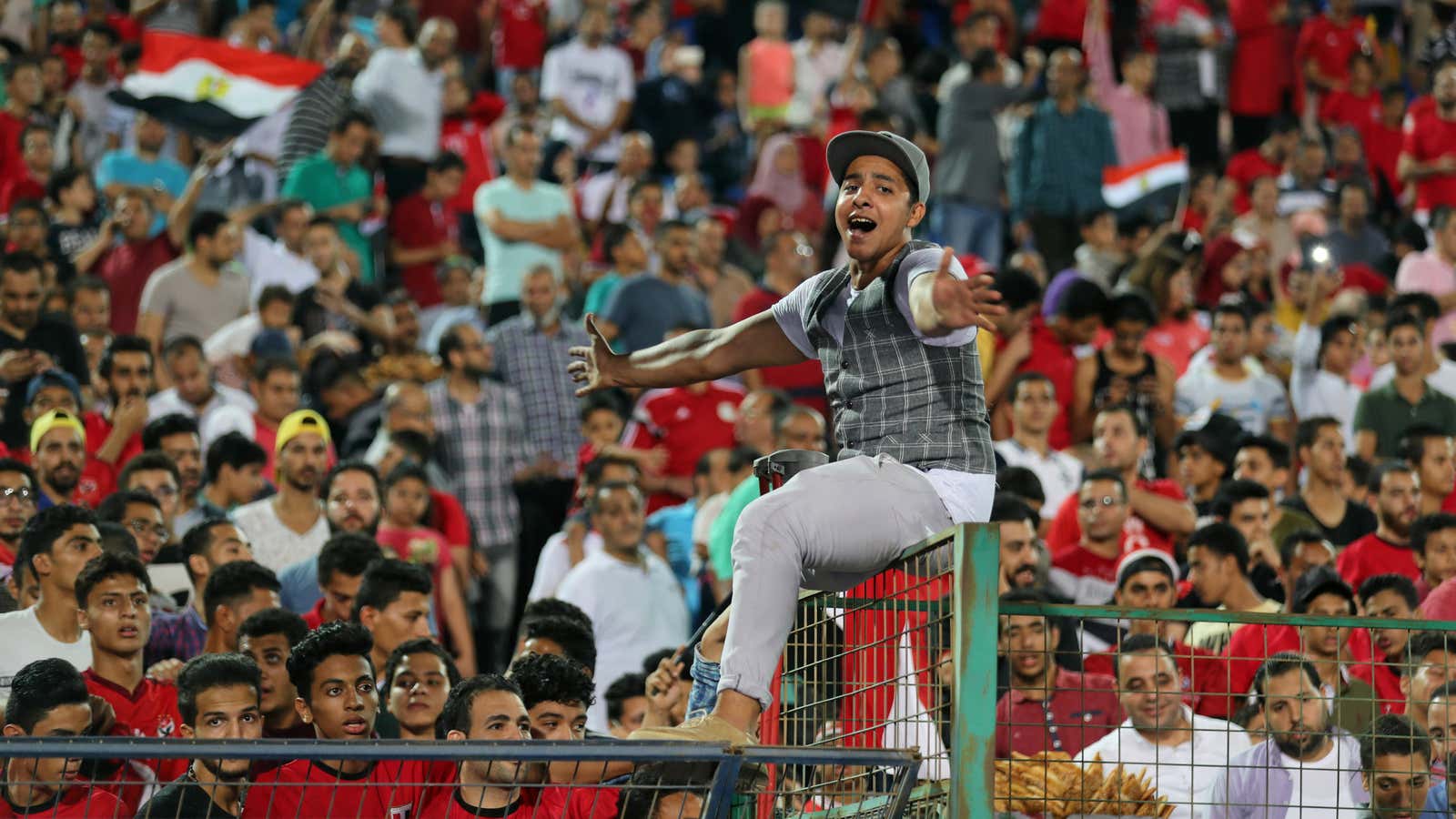Anywhere in the world, I know I can walk into a bar showing soccer and commune with other fans about the greatness of Lionel Messi and my frustrations with Arsenal. Through those conversations, we can’t help but recognize our shared humanity, rather than our political and cultural differences.
I’ve always felt that way, but never had any evidence to back it up. Until now.
A recently published study examined the impact of soccer success on nation building. Specifically, the researchers looked at whether, for African countries, success in World Cup qualifying matches and at the African Nations Cup changed people’s sense of identity and, as a result, reduced acts of violence.
They found surprisingly large effects. In the 15 days after a national team’s victory, people responding to surveys were 20% less likely to put their ethnic identity before their national identity than they were in the 15 days before the match. They were also more likely to say they trusted their neighbors, with a particularly large increase in trust of people from different ethnicities. The study examined results before and after 70 matches from 2000 to 2015.
And it’s not just people acting friendlier around pollsters. The researchers found that in countries where the national team barely qualified for the knockout phase of the African Cup of Nations, there were lower levels of political violence than in countries that just missed out. The data show a 18% reduction in violence and a 20% reduction in fatalities from politically motivated violence.
“It’s really hard to build a national identity,” says Filipe Campante, an economist at Harvard University and one of the authors of the study. “In lots of countries in the world, there is this challenge of getting people to feel they are part of a nation, which is important because it helps strengthen national institutions. Anyone who pays attention to sports can see that when you have these international competitions you see explosions of nationalistic feelings.”
Campante cautions that this nationalism is not always good. It may lead to xenophobia and external conflict. But in many cases, especially in countries where national identity is not strong, it can be a force for good.
Campante says that perhaps the most interesting discovery was that the impact was strongest when the team was ethnically diverse. He thinks this is do with a role-modeling effect. “When you see people from different groups cooperate and achieve great things, that can provide a metaphor for your life,” he explains.
